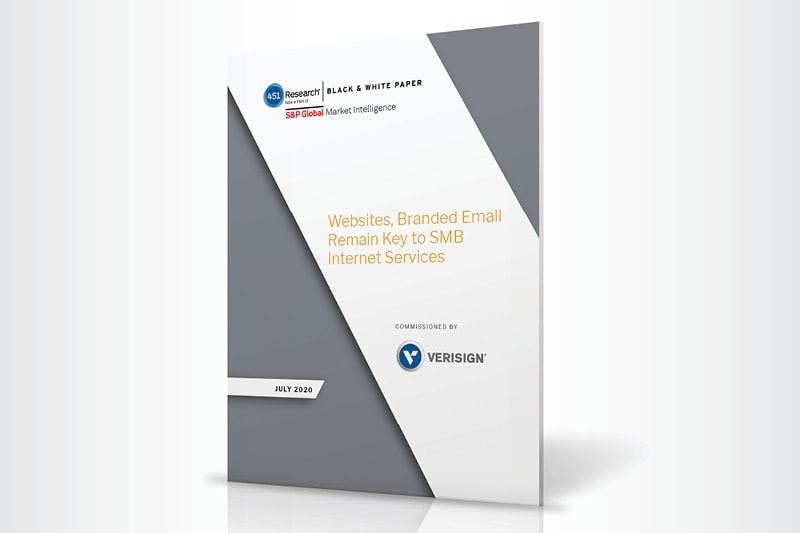
Businesses today have many options for interacting with customers online. The findings of our independent survey of online consumers suggest that websites and branded email continue to be critical components of many businesses’ online presence, essential to supporting consumer confidence and enabling effective interaction with customers.
The quantitative study, commissioned by Verisign and conducted in December 2019 and January 2020 by 451 Research, now a part of S&P Global Market Intelligence, surveyed 5,450 online consumers across key markets in North America, Latin America, Europe and Asia to help understand their sentiments on interacting with businesses online.
The survey was designed to arm service providers and registrars with an understanding of how the resources they provide to businesses can help create trust and deliver value to their customers.
Among those surveyed, approximately two-thirds (66%) agreed that a business with its own website is more credible than one without. Likewise, a majority indicated that they would expect it to be more difficult to verify the identity of (56%), find online (55%) and contact (54%) a business that does not have its own website.
Certainly, this doesn’t suggest that businesses should abandon other online channels, such as social media and search engine efforts, to focus on a website-only approach. Instead, 64% of respondents said that a business with many points of online presence is more credible than a business with few.
Still, the study suggests that other online resources should complement, rather than replace, a small business’s own website. Respondents identified a business’s own website as being one of the most popular online methods for learning about (69%) and conducting transactions with (57%) businesses. Further, 71% of respondents reported being more likely to recommend a business with a professional website.
Taken together, these findings suggest that a website can help add credibility and drive new business.
Trust is central to the relationship between a business and customers. This may be particularly true for online transactions (95% of survey respondents said they actively make purchases online), which require consumers to trust not only that the business will deliver the product or service for which they have paid, but also that it will not misuse payment or personal information.
A branded email address may be able to help, as an overwhelming number of respondents (85%) agreed that a business with a branded email address is more credible than one that uses a free email account. Respondents were more likely to have used a business’s branded email address (67%), than the telephone (56%) or social media (40%), to communicate with a business during the prior 12 months.
For a small business, failing to be perceived as credible online could mean lost business not just today, but also in the future. A website and branded email address can help businesses add credibility and more effectively engage with consumers online.
Service providers offer a variety of website-building tools, email hosting solutions, and domain name registration services that can help businesses – whether just starting or well-established – to have a website and use a branded email.
Detailed survey results are available in 451 Research’s Black & White Paper Websites, Branded Email Remain Key to SMB Internet Services.
Verisign is a global wholesale provider of some of the world’s most recognized top-level domains, including .com and .net. For website building tools and email hosting solutions, contact a registrar. You can find a registrar here.
The post Websites, Branded Email Remain Key to SMB Internet Services appeared first on Verisign Blog.